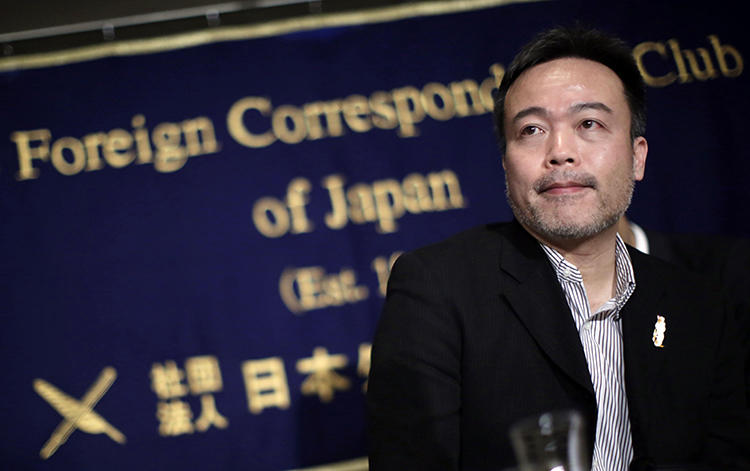Washington, D.C., February 6, 2019–The Committee to Protect Journalists today called on the Japanese government to allow freelance journalist Kosuke Tsuneoka to leave the country to conduct reporting. Tsuneoka was stopped by immigration officials at Tokyo’s Haneda Airport while trying to leave Japan for a reporting trip to Yemen on February 2 and, in a phone conversation with the Foreign Ministry, was told that his passport had been invalidated, he told CPJ. He was then ordered by foreign ministry officials to surrender the passport.
“The Japanese government’s move to block freelance journalist Kosuke Tsuneoka from reporting abroad amounts to an outrageous interference with the workings of the free press,” said Steven Butler, CPJ’s Asia program coordinator. “Tsuneoka has every right to travel outside Japan to report the news.”
Japanese Foreign Minister Taro Kono was quoted yesterday as saying that the government issued an order to revoke the passport of a “male Japanese national” at Haneda Airport, but he did not mention Tsuneoka by name, according to the Hong Kong daily South China Morning Post.
Japan’s passport regulations permit the government to revoke a citizen’s passport if they attempt to enter a country from which they have been banned, according to The Japan Times, an English-language daily. On January 14, Tsuneoka was denied entry at an airport in Oman while en route to Yemen and was deported, according to the Times. On February 2 he was preparing to take a flight to Yemen that did not pass through Oman.
Tsuneoka told CPJ that he suspected his denial in Oman was also part of Japanese authorities’ efforts to try to stop him from going to Yemen. According to the Times report, the Foreign Ministry suspended the passport of a freelance photographer seeking to travel to Syria in 2015 on the grounds that it was too dangerous to travel there. In early 2015, Japanese freelance journalist Kenji Goto was executed by the Islamic State in Syria, as CPJ reported at the time.
Japan’s Foreign Ministry did not immediately respond to CPJ’s emailed request for comment.
Tsuneoka told CPJ he had not yet decided whether to fight the revocation of his passport in court, citing the 2015 freelance photographer’s case to have his passport restored, which was dismissed by the Supreme Court.
Tsuneoka was kidnapped and held for more than five months in Afghanistan in 2010, as CPJ reported at the time.
